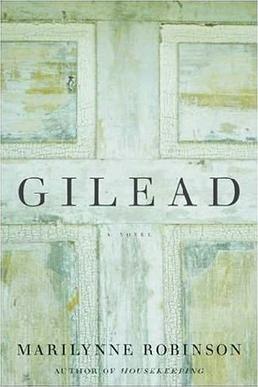
I wrote recently about accidentally stumbling upon a run of Pulitzer Prize-winning novels — The Grapes of Wrath, Tales of the South Pacific, A Confederacy of Dunces, The Goldfinch. Now, I’ve finally gotten around to picking up Gilead by Marilynne Robinson, which won the Pulitzer in 2005. It was a slow start, but I’m getting to enjoy it. I only write this though to ponder the style.
Gilead is considered a novel written in the “epistolary” style — that is, in the form of a letter or letters. Now, the first time I heard of this was when I was reading the greatest epistolary novel ever written (The Expedition of Humphry Clinker), so you could say that I’ve been spoiled. Smollett was absolutely masterful in his writing, right down to the tone and misspellings of his chamber maids. And here’s where I’m having a problem with Gilead. It won the Pulitzer. The quality of its prose is just that good. The story (so far) is excellent. And it’s supposed to be a man’s memoir, written as he was dying, in the form of a journal to his son. See the problem? This country preacher is writing Pulitzer-level stuff. And it just doesn’t fit.
I don’t know why Robinson chose to go this route. I’m sure I’ll find out…or maybe I won’t. But, having read Humphry Clinker, I know how a good epistolary novel works, and Gilead isn’t doing it for me in that respect right now. I don’t mind the beautiful language. I do mind that it’s coming from a character who really shouldn’t be writing that well.
Note: Those who know the novel will know that the character claims to have written an immense amount of work over the years as a pastor — tens-of-thousands of pages. I’ve learned, just from writing this blog, that practice does help. I maintain, though, that the difference between writing sermons and writing other things is quite large. The one certainly does not follow the other. Purpose, audience, voice, expectations of the communication — they’re all things to consider in noting those differences.
